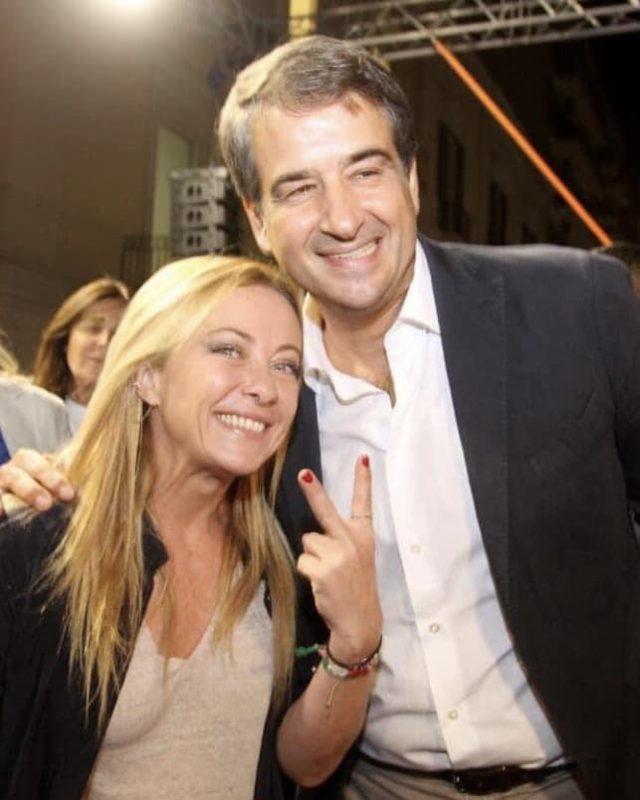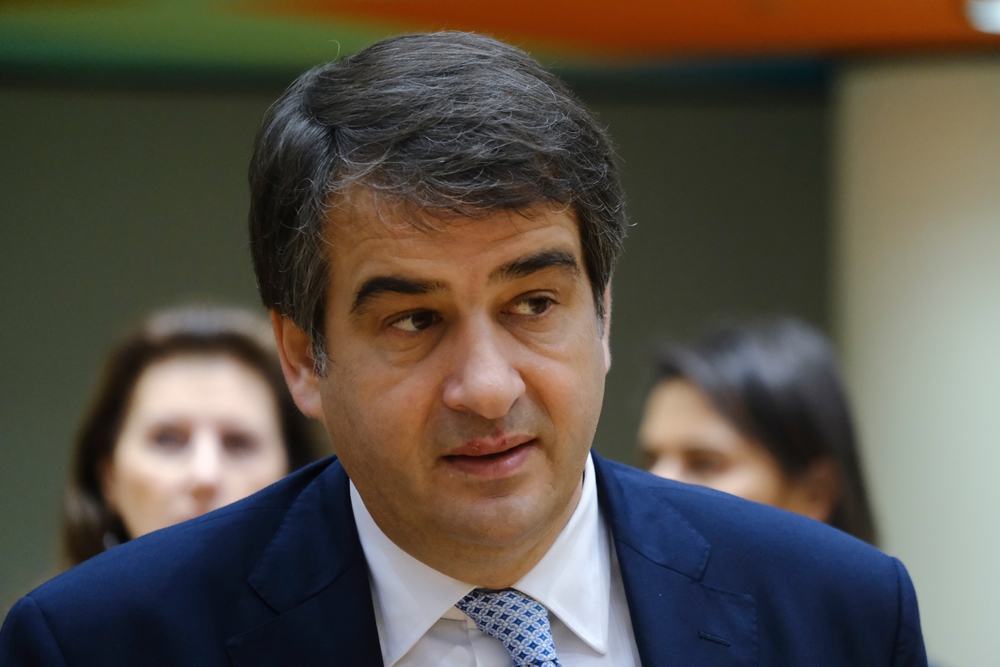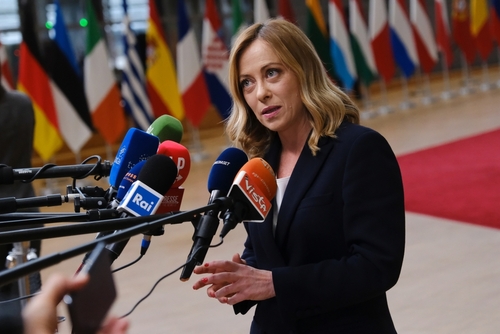
Raffaele Fitto designated Vice-President of the European Commission
The face of the Italian Right in the heart of Europe
 In the last few hours, the italian Minister Hon. Raffaele Fitto (FdI, ECR) was confirmed as Executive Vice-President of the European Commission. He will be responsible for Cohesion and Reforms. He will also manage, together with his Latvian colleague Valdis Dombrovskis (JV, EPP), the funds of the so-called PNRR or the National Recovery and Resilience Plan, as well as other very notable dossiers such as transport, tourism, agriculture, and fishing.
In the last few hours, the italian Minister Hon. Raffaele Fitto (FdI, ECR) was confirmed as Executive Vice-President of the European Commission. He will be responsible for Cohesion and Reforms. He will also manage, together with his Latvian colleague Valdis Dombrovskis (JV, EPP), the funds of the so-called PNRR or the National Recovery and Resilience Plan, as well as other very notable dossiers such as transport, tourism, agriculture, and fishing.
The first consensus comes from Italy, with Prime Minister Giorgia Meloni (FdI) expressing her satisfaction with the nomination. She sees it as a success for both Raffaele Fitto personally and for Italy as a whole. This nomination also marks a defeat for Forza Italia (FI, PPE) in the internal “competition,” despite FI being among the government forces that support the majority around Ursula von der Leyen (CDU, PPE). This development required FI to take a step back on this important assignment.
The center-left party is grappling with the reality of its defeat. Elly Schlein, the secretary of the PD (S&D), is foreseeing tough times ahead, emphasizing the party’s commitment to defending its socialist priorities and refusing to be taken for granted. This setback is a significant blow for the opposition, particularly considering their earlier criticism of the government’s decision not to support Ursula Von Der Leyen as the President of the European Commission for the second term. They had accused Giorgia Meloni of isolating the nation, but now they find themselves in Europe with a representative of the much-criticized Center-right. This choice was favored not only over a representative of Forza Italia but also over influential members of the PD who had supported von der Leyen in the European Parliament.
The decision made by Giorgia Meloni and Fratelli d’Italia has significantly disrupted several political dynamics in a clever maneuver. By incorporating Fitto, the Italian government was shielded from potential exclusion from the European Commission, thus preventing the opposition from gaining strength. This move also allowed the party to avoid committing to supporting the parliamentary majority, which once again encompasses a wide spectrum of political groups, ranging from socialists to the European popular party, including the greens and liberals.
If on the one hand, however, the Left is drawing water to its own mill by crying ultra-conservatism, on the other, Europe as a whole and first and foremost President Ursula von der Leyen cannot help but see in the new structure of the European Commission a victory on all fronts: a team, as stated by von der Leyen herself, whose sole objective is to make Europe stronger. The absence of the Greens among the designated Commissioners is a bit surprising: despite this group having given a decisive push for the reconfirmation of von der Leyen, no one from those parties has received the assignment as Commissioner.
The composition of the European Commission may appear to favor the European People’s Party (EPP), with 15 out of 27 commissioners being affiliated with the EPP, including President Ursula von der Leyen. The Socialists and Democrats (S&D) and the Renew Europe group each have 5 commissioners, while Hungary has an independent commissioner, Olivér Várhelyi, who is closely associated with Fidesz, and Italy has Fitto as a commissioner.
The upcoming hearings of the Commissioners with the parliamentary committees are crucial as they will determine whether they will be confirmed or rejected. It’s important to work on gaining the support of Members of the European Parliament (MEPs) to ensure a successful confirmation process and avoid any potential setbacks. Raffaele Fitto’s appointment as the only executive vice president out of six is a significant achievement for the entire European Conservatives and Reformists (ECR) group. His portfolio, which includes oversight of the cohesion funds and the reforms of NextGenerationEU, underscores the importance of his role.
 The advantage in the appointment of Fitto clearly lies not only in the European perspective where Italy once again, and above all Giorgia Meloni, has proven to be a skilled strategist, opening a window of dialogue between the coalition at the top of Europe and the most radical right, but also within Italy itself. This maneuver should be able to facilitate the discussion between Matteo Salvini’s League (Patriots for Europe) and Palazzo Chigi in order to find a point of agreement on that much feared government “reshuffle” that has been rumored since the beginning of the Fitto quarrel.
The advantage in the appointment of Fitto clearly lies not only in the European perspective where Italy once again, and above all Giorgia Meloni, has proven to be a skilled strategist, opening a window of dialogue between the coalition at the top of Europe and the most radical right, but also within Italy itself. This maneuver should be able to facilitate the discussion between Matteo Salvini’s League (Patriots for Europe) and Palazzo Chigi in order to find a point of agreement on that much feared government “reshuffle” that has been rumored since the beginning of the Fitto quarrel.
The biggest applause, however, comes from the South of the peninsula: Raffaele Fitto, from Salento and Puglia with a long political career and an in-depth knowledge of southern issues, is seen as a key figure in managing European cohesion funds, essential for the development of the regions of Southern Italy. The mayor of Bari, Antonio Decaro (PD, S&D), commented that Fitto represents “the best solution” and expects him to be able to closely follow the needs of the southern territories.
The appointment of Raffaele Fitto as Executive Vice-President of the European Commission is a significant moment for the Italian Right and its increasing influence in Europe. This acknowledgment not only underscores Italy’s importance in the European context but also signifies a victory for Giorgia Meloni and her government, who have strategically positioned themselves in a political landscape dominated by traditional forces and where the EPP and “large majorities” hold sway.
Fitto’s prominent role presents an opportunity to shape European policies, particularly those relating to less developed regions. As a result, the European Right solidifies its position as a significant force capable of actively participating in continental dynamics.



 Subscribe
Subscribe